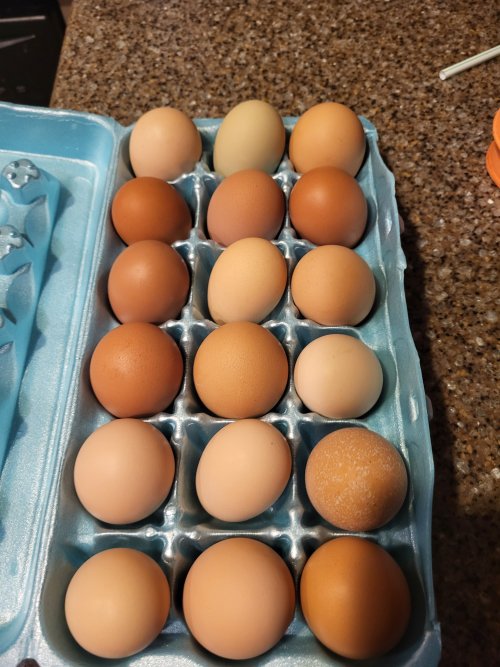BRUSH, Colo. – Over the course of the past week, CPW wildlife officers have received several reports of snow geese displaying symptoms of highly pathogenic avian influenza (HPAI) near the towns of Brush and Fort Morgan in Morgan County.
After investigating and sending samples for testing to CPW’s Wildlife Health Lab in Fort Collins, CPW has received a presumptive positive result for HPAI.
“Now that we’ve had a presumptive positive test, we’re asking members of the public who find dead snow geese in Morgan County to presume it’s highly pathogenic avian influenza,” said CPW Wildlife Pathologist Karen Fox. “CPW and the Colorado Department of Agriculture are asking the public not to touch any dead birds they find.”
CPW and the CDA are continuing to investigate the outbreak in Morgan County.
Resources on HPAI
Please see the CDA’s website for more information and links to situation reports on the State Of Colorado Response to HPAI.
It is critical to report sick birds or unusual bird deaths.
Most wild birds that are infected with avian influenza viruses do not show signs of disease. However, HPAI strains can occasionally cause disease in some wildlife species including swans, diving ducks, gulls, geese, grebes, raptors, vultures, cranes and terns. In these birds, typical symptoms include swimming in circles, head tilt and lack of coordination. Game bird species such as turkeys, grouse, and quail may also be susceptible to HPAI with signs more similar to poultry such as swelling of the head, diarrhea, moving slowly, ruffled feathers, respiratory signs, and not eating. Some affected wild birds are found dead.
Wild birds can serve as vectors that can transmit HPAI to domestic poultry. For backyard or commercial poultry, HPAI is a very contagious, fatal animal disease that can decimate a flock in less than 48 hours. Domestic flock owners should protect their birds through good biosecurity practices, monitor flocks for signs of illness, and report suspicious disease or mortality events to the State Veterinarian’s Office at 303-869-9130.
Waterfowl hunters should take steps to minimize the risk of spreading the virus, such as not handling or eating sick game, field dressing the game, and wearing personal protective equipment while handling and cleaning game. When done handling game, wash hands thoroughly with soap or disinfectant, and clean knives, equipment, and surfaces that come in contact with game. Do not eat, drink, or smoke while handling animals. All game should be thoroughly cooked to an internal temperature of 165 degrees Fahrenheit before being consumed.
In rare cases, avian influenza can pass to humans, especially those exposed to sick birds. Hunters are advised to monitor their health for any signs of flu-like symptoms within a week of handling birds. Anyone who feels ill, should visit their health care provider.
More information about HPAI is available on CPW’s website.
After investigating and sending samples for testing to CPW’s Wildlife Health Lab in Fort Collins, CPW has received a presumptive positive result for HPAI.
“Now that we’ve had a presumptive positive test, we’re asking members of the public who find dead snow geese in Morgan County to presume it’s highly pathogenic avian influenza,” said CPW Wildlife Pathologist Karen Fox. “CPW and the Colorado Department of Agriculture are asking the public not to touch any dead birds they find.”
CPW and the CDA are continuing to investigate the outbreak in Morgan County.
Resources on HPAI
Please see the CDA’s website for more information and links to situation reports on the State Of Colorado Response to HPAI.
It is critical to report sick birds or unusual bird deaths.
- Sick birds or birds that have died from unknown causes:
- Call the Avian Health Hotline at Colorado State University (CSU): (970) 297-4008
- Dead birds:
- Submit to the CSU Veterinary Diagnostic Laboratory in Fort Collins for HPAI Testing: (970) 297-4008 or (970) 297-1281
- Multiple domestic sick birds or multiple unusual domestic bird deaths:
- Call the Colorado State Veterinarian’s Office (303) 869-9130 or the USDA-Veterinary Services Colorado Office (303) 231-5385
- Wild Birds (not domestic):
- If you find three or more dead wild birds in a specific area within a two-week period OR if you see live birds showing clinical signs of disease, please contact your local Colorado Parks and Wildlife office. During the holiday or after hours, contact Colorado State Patrol at 719-544-2424 for the on-call wildlife officer.
Most wild birds that are infected with avian influenza viruses do not show signs of disease. However, HPAI strains can occasionally cause disease in some wildlife species including swans, diving ducks, gulls, geese, grebes, raptors, vultures, cranes and terns. In these birds, typical symptoms include swimming in circles, head tilt and lack of coordination. Game bird species such as turkeys, grouse, and quail may also be susceptible to HPAI with signs more similar to poultry such as swelling of the head, diarrhea, moving slowly, ruffled feathers, respiratory signs, and not eating. Some affected wild birds are found dead.
Wild birds can serve as vectors that can transmit HPAI to domestic poultry. For backyard or commercial poultry, HPAI is a very contagious, fatal animal disease that can decimate a flock in less than 48 hours. Domestic flock owners should protect their birds through good biosecurity practices, monitor flocks for signs of illness, and report suspicious disease or mortality events to the State Veterinarian’s Office at 303-869-9130.
Waterfowl hunters should take steps to minimize the risk of spreading the virus, such as not handling or eating sick game, field dressing the game, and wearing personal protective equipment while handling and cleaning game. When done handling game, wash hands thoroughly with soap or disinfectant, and clean knives, equipment, and surfaces that come in contact with game. Do not eat, drink, or smoke while handling animals. All game should be thoroughly cooked to an internal temperature of 165 degrees Fahrenheit before being consumed.
In rare cases, avian influenza can pass to humans, especially those exposed to sick birds. Hunters are advised to monitor their health for any signs of flu-like symptoms within a week of handling birds. Anyone who feels ill, should visit their health care provider.
More information about HPAI is available on CPW’s website.






